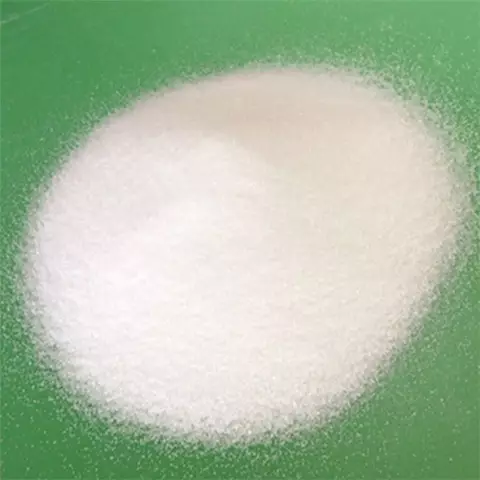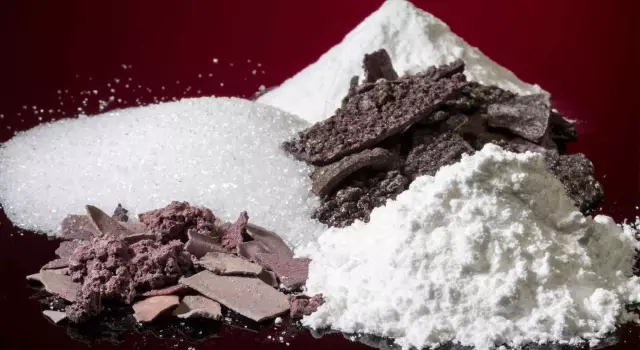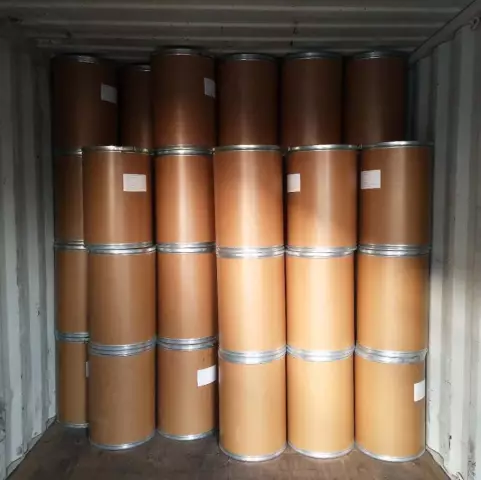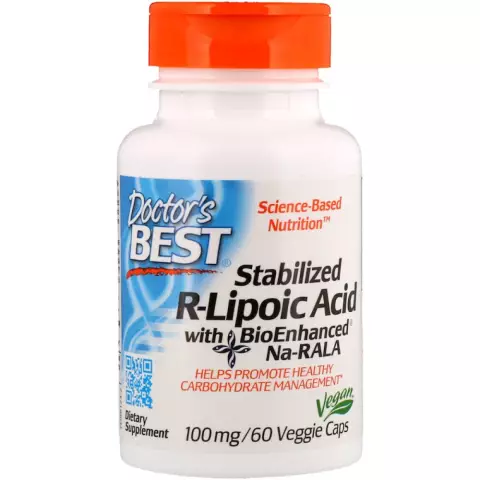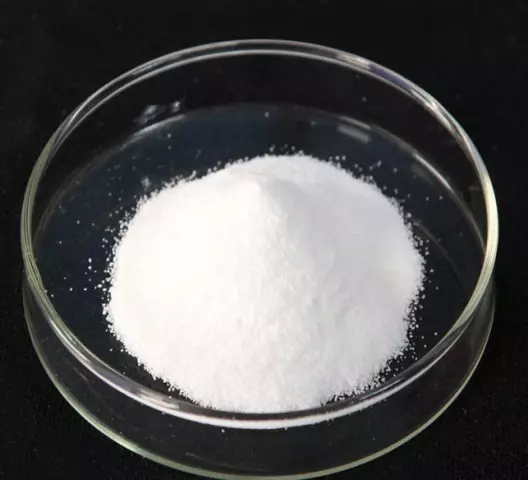- Author Rachel Wainwright wainwright@abchealthonline.com.
- Public 2023-12-15 07:39.
- Last modified 2025-11-02 20:14.
Sorbic acid
Description and characteristics
Sorbic acid (e200) is a natural organic compound. According to its physical properties, it is a colorless solid, practically insoluble in water. The preservative sorbic acid is widely used in the food industry due to its ability to protect food from mold and increase its shelf life.
The acid was first isolated in 1859 by distilling rowan oil, from which it got its name (in Latin Sorbus means “mountain ash”).
In the first half of the last century, the antimicrobial properties of acid were discovered. And in the mid-50s, it began to be produced on an industrial scale and used as a preservative. Today the food supplement e200 is produced by condensation of ketene with crotonic aldehyde using acid catalysts.
Properties of sorbic acid e200
The exceptional properties of the natural food preservative sorbic acid are primarily due to the composition of the chemical compound. E200 has pronounced antimicrobial properties that inhibit the development of pathogens, in particular, yeasts and molds. When carrying out numerous experiments and scientific studies, carcinogenic substances have not been identified in it. In reasonable dosages, sorbic acid e200 has a positive effect on the human body, promotes detoxification of the body and enhances immunity.
Unfortunately, this preservative does not completely destroy microbes, but only inhibits their development, so it is advisable to add it to raw materials that are not contaminated with microorganisms. In addition, some microorganisms have the ability to assimilate and break down the preservative.
Sorbic acid e200 exhibits its antimicrobial properties only at acidity below pH 6.5. The acid is chemically stable but can easily volatilize with water.
The use of sorbic acid
Acid is used in food products in various quantities, but on average 30-300 g per 100 kg of finished product.
They add a preservative to a wide variety of products. In the food industry, sorbic acid is permitted in more than ten standards. They add it both individually and as part of other preservatives.

According to GOSTs and TUs, sorbic acid e200 is included in the list of raw materials for such products: juices, mayonnaise, canned milk, sauces, cheese products, olives, dried fruits, jams and preserves, bakery products, wines, soft drinks, filled chocolate and sweets, pates, stuffing for dumplings, fish. During the preparation of the dough, the acid almost does not dissolve, therefore it does not inhibit the development of yeast, but in already finished baked goods it shows its anti-mold effect.
Thanks to the addition of e200, the shelf life of drinks is increased to 30 days or more. Since the preservative is poorly soluble in water at low temperatures, experts prefer to use not the acid itself, but an aqueous solution of sodium sorbate to increase the stability of soft drinks. For these purposes, potassium sorbate is also widely available and is more suitable for storage.
Besides the food industry, sorbic acid is also used in the tobacco and cosmetics industries.
Sorbic acid harm
In permissible doses (25 mg / kg), there will be no harm from the food additive e200 for the human body. However, when using it, allergic reactions are possible in the form of rashes and irritations on the skin.
In addition, the harm of sorbic acid e200 lies in the destruction of cyanocobalamin (vitamin B12) in the human body. Lack of vitamin B12, in turn, leads to various neurological disorders and provokes the death of nerve cells.
The food additive is approved for use in Ukraine, Russia and a number of other countries, and is prohibited in Australia.
Found a mistake in the text? Select it and press Ctrl + Enter.

